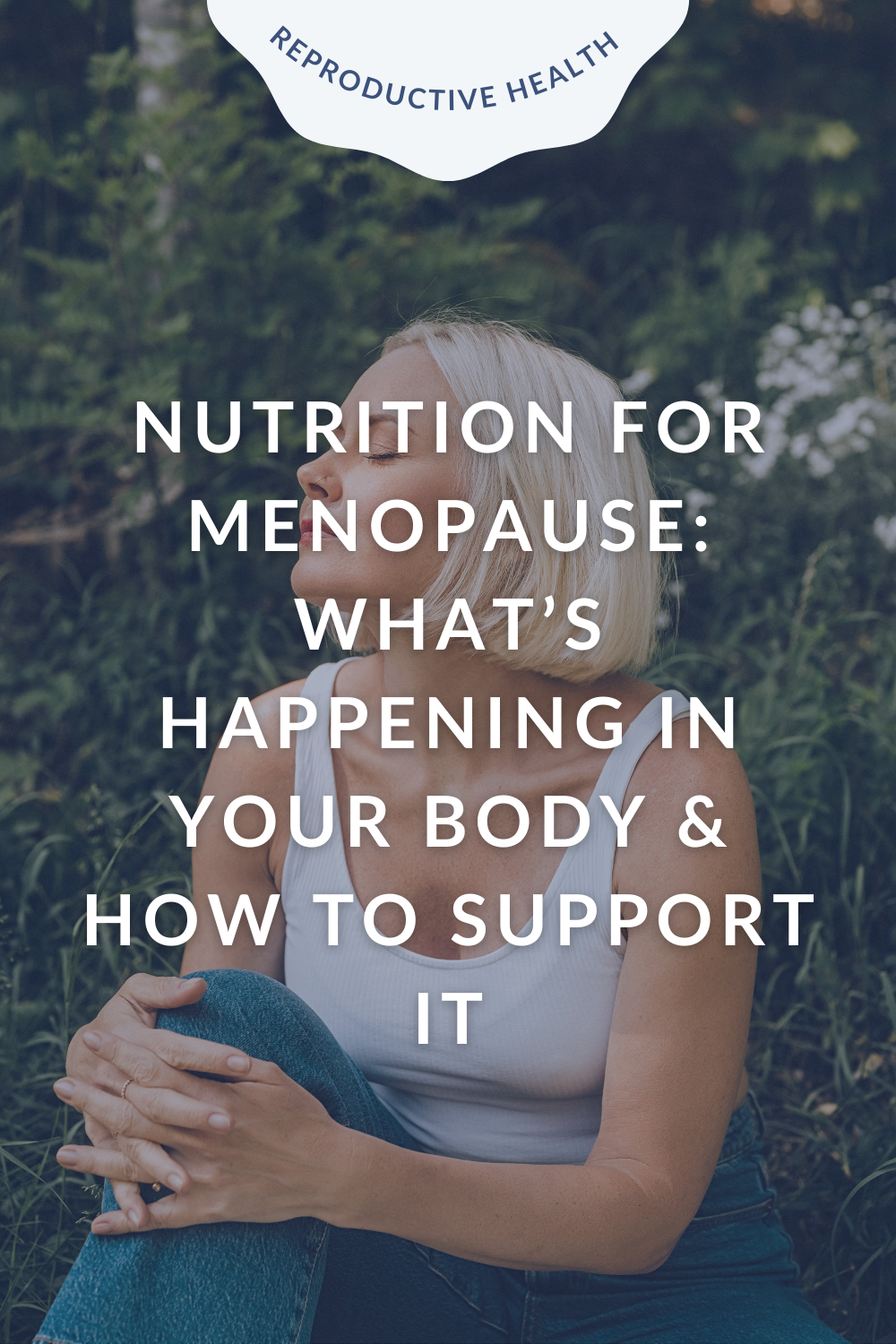Should You Eat Breakfast?
"Eat your breakfast!" It’s the classic advice so many heard from parents growing up. Breakfast has long been called the most important meal of the day, but is that really true?
Today, we’re diving into everything you need to know about breakfast, so you can make informed decisions that work best for you!
Picture this: You wake up and dive straight into the chaos of your packed schedule. Skipping breakfast, you down a quick espresso and hit the ground running. Time to get things done.
But what happens by noon? Or mid-afternoon? Your energy crashes. Your stomach feels unsettled and sour. Cravings for sweets hit hard, and everything feels out of control.
Sound familiar? The midday slump and intense cravings aren’t just about skipping breakfast - they’re tied to your hormones.
Breakfast helps stabilize key hormones like cortisol and insulin, while supporting appetite and energy regulation. This is particularly important for people with PCOS, endometriosis or hormone disorders.
Starting your day with a balanced meal can stabilize blood sugar, sustain energy, and curb cravings throughout the day.
Breakfast and Cortisol Hormone
Breakfast can have a significant impact on many hormones, starting with cortisol!
You've likely heard of cortisol as the "stress hormone", and that's true -it helps protect your body from stress by increasing blood sugar levels to manage stressors effectively. It also plays a key role in regulating carbohydrate, protein, and fat metabolism, amongst so many other things.
Typically, cortisol peaks in the morning to provide energy for the day and gradually declines as the day progresses.
While there's not many high-quality studies on cortisol and breakfast in women, one observational study on 65 females found that skipping breakfast disrupted cortisol’s natural rhythm, leading to higher free cortisol levels and increased blood pressure. Remember how cortisol increases blood sugar levels to help your body handle stress? While this is a great stress management mechanism, too much of a good thing can become harmful.
This is even more critical when we consider PCOS, a condition that already raises the risk of type 2 diabetes and issues with blood sugar control. Research suggests that people with PCOS tend to have significantly higher cortisol levels. In this context, skipping breakfast becomes a double whammy.
Also, remember that calories are a measure of energy! Diet culture has made it so scary. So, if you’re not starting your fay fuelling up your gas tank with energy (calories) – yet exerting yourself hard at work, your body will be put under a lot of stress, which can impact cortisol levels in the long-term.
Breakfast and Insulin Resistance in PCOS
Insulin is another important hormone to consider for people with PCOS, especially when it comes to breakfast.
When you eat carbohydrates, your pancreas releases insulin, which helps take sugar from your bloodstream into your muscles to be used as energy!
That said, once again, too much of a good thing can become harmful. When your body has high levels of insulin (also known as hyperinsulinemia), this can increase risk of developing insulin resistance over time, which is linked to illness.
In the morning, your blood sugar may be low after fasting overnight. This can trigger one of two responses that may lead to higher insulin levels:
A drop in blood sugar signals the liver to break down glycogen (stored sugar) into glucose, which is then released into the bloodstream to provide energy. This can lead to hyperglycemia, or high blood sugar and then insulin.
If your blood sugar gets too low, you may feel shaky, hungry, or jittery. Your body will crave quick-digesting carbohydrates for an immediate energy boost. This can explain why cravings may feel "out of control." It's not about willpower - it's your body desperately needing fuel! This can trigger binge eating that further spikes blood sugars and insulin, making it harder to manage energy and hormones.
Starting your day with a balanced breakfast can help prevent this rollercoaster effect and support more stable blood sugar and insulin levels throughout the day.
Breakfast and Constipation
Eating breakfast can be crucial for gut health, especially since constipation is more common among women. One key reason breakfast is so important is that it can trigger the gastrocolic reflex, a natural process that helps regulate the mobility of the lower digestive tract after a meal.
This reflex is responsible for clearing bulk from the intestines. In other words, it helps you poop!
This reflex tends to be more sensitive in the morning and after eating. If you struggle with constipation or slower gut motility, having a balanced breakfast may help get things moving.
Another way to think of it is this - think of your gut as a muscle that works best when it's active and consistent. Skipping breakfast or having delayed and sporadic, super "light" meals/snacks doesn’t provide your gut with the regular movement it needs. There's a really old phrase in dietetics, "If the gut works, use it." This stands the test of time!
And if you follow a skipped breakfast with a large meal, you're essentially overloading your digestive system, asking your gut muscles and enzymes to work overtime at once.
This is why we often recommend a balanced breakfast- along with other dietary strategies - for those struggling with digestive issues like reflux, bloating, constipation, and diarrhea.
What's a balanced, healthy breakfast?
Focus on three nutrients when building a balanced breakfast:
Protein – To keep you satiated, slow digestion, stabilize blood sugars and insulin levels after eating. Think Greek yogurt, eggs, nuts, seeds, smoked salmon, soy or cow's milk.
Fats – To aid in absorption of fat-soluble vitamins, keep you satiated and control blood sugars and insulin after eating. Plant fats are also excellent for heart health. Think hemp seeds, walnuts, avocado, smoked salmon.
Fibre – To keep your digestive system moving, promote heart health and keep you satiated. Think whole grains (oats, whole grain bread), fruit with skin, nuts, seeds.
Want to learn more about how to build a balanced breakfast for balanced hormones? Check out our blog here for breakfast ideas and learn how to build da PCOS-friendly breakfast.
Starting your day with a healthy breakfast isn't just an old piece of advice - it's helpful for stabilizing hormones, supporting digestion, and maintaining energy throughout the day. By fuelling your body with a mix of protein, fats, and fibre, you can help regulate cortisol and insulin, manage cravings, and support gut health!
Hi! I’m Trista
A Registered Dietitian and reproductive health expert. I’m here to help you gain confidence to overcome your Polycystic Ovary Syndrome and digestive health woes, while bettering your relationship with food.
CATEGORIES
Craving deeper change?
Our 1-on-1 Nutrition Coaching Programs give you personalized and structured guidance to develop sustainable eating habits to thrive. Learn how to boost energy, regulate periods, control your blood sugars and beat the bloat.
References:
Benjamin JJ, Kuppusamy M, Koshy T, Kalburgi Narayana M, Ramaswamy P. Cortisol and polycystic ovarian syndrome - a systematic search and meta-analysis of case-control studies. Gynecol Endocrinol. 2021 Nov;37(11):961-967. doi: 10.1080/09513590.2021.1908254. Epub 2021 Apr 5. PMID: 33818258.
Giménez-Legarre N, Miguel-Berges ML, Flores-Barrantes P, Santaliestra-Pasías AM, Moreno LA. Breakfast Characteristics and Its Association with Daily Micronutrients Intake in Children and Adolescents-A Systematic Review and Meta-Analysis. Nutrients. 2020 Oct 20;12(10):3201. doi: 10.3390/nu12103201. PMID: 33092061; PMCID: PMC7589686.
Witbracht, M., Keim, N. L., Forester, S., Widaman, A., & Laugero, K. (2015). Female breakfast skippers display a disrupted cortisol rhythm and elevated blood pressure. Physiology & behavior, 140, 215–221. https://doi.org/10.1016/j.physbeh.2014.12.044















